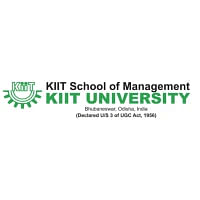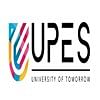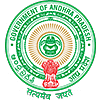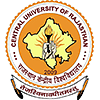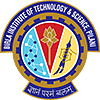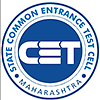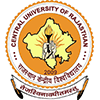
Table of Contents
The MU OET (Manipal University Online Entrance Test) Previous Years Question Papers is an essential tool for the students who want to sit for the entrance exam. These papers are a clear window of the nature of the examination, the structure of questions, the topics of importance in various subjects, etc.
By practicing MET previous year question papers, students learn the type of questions and the difficulty level they will be exposed to. This practice is useful because it reinforces conceptual understanding and is also important in fulfilling the time limit imposed on the examination. MU OET previous year papers help aspirants to know themselves, their strong performances, and weaknesses, enabling efficient ways of preparing to score the required marks.
MU OET Previous Years Question Papers 2020 PDF
The MU OET 2020 Question Paper of the Previous Year can be downloaded free of cost and will greatly help you prepare for your upcoming examination.
These papers give insights into the question patterns, the nature of such examinations, and the topics of great importance to you. These papers can help you evaluate what you know and assist you in time management controlling ability.
| Subjects Name | Question Paper PDF |
| Physics | Download PDF |
| Chemistry | Download PDF |
| Mathematics | Download PDF |
| English & General Aptitude | Download PDF |
MU OET Previous Years Question Papers 2019 PDF
The previously documented papers of the MU OET 2019 are of great assistance to the candidates who are preparing for the exam.
Studying these papers will help you better grasp the syllabus and make you accustomed to the pattern of the questions. These help in self-evaluation and are very useful in targeting the areas of strengths and weaknesses in preparation.
| Subjects Name | Question Paper PDF |
| Physics | Download PDF |
| Chemistry | Download PDF |
| Mathematics | Download PDF |
| English & General Aptitude | Download PDF |
MU OET Previous Years Question Papers 2018 PDF
Thus, the MU OET 2018 question papers from the previous year will benefit your preparation for the rest of the exam.
These papers outline standard topics and subject questions that will likely be given to the students. They also enable you to practice in a simulated atmosphere, which will be real on the day of the actual examination.
| Subjects Name | Question Paper PDF |
| Physics | Download PDF |
| Chemistry | Download PDF |
| Mathematics | Download PDF |
| English & General Aptitude | Download PDF |
Advantages of Solving MU OET Previous Years Question Papers
Solving MU OET Previous Years Question Papers has various benefits that help improve a student’s preparation for the entrance examination. Here are some advantages:
- Students who practice past papers are used to facing the examination, the types of questions that will be followed, how the sections are structured, and how long the whole process is. Such familiarity reduces anxiety on the examination day.
- Previous years’ term papers will elucidate the most frequently tested topics and concepts, enabling the students to dedicate their study time to the areas that carry a high weight. Such a strategy may, in turn, ease the level of preparation.
- Timed attempts at the past papers enhance the students’ initiation speed since they know the value of time. They understand how much time should be spent on a specific question, thus improving their speed and ensuring they finish the paper within the stipulated time.
- Solving past year papers provides the learners with a self-evaluation of where they are in terms of knowledge and skill. Students can then pinpoint their strengths and weaknesses, concentrating on areas that must be improved on before the exam.
- Analytical skills and creativity also improve when a full range of questions is administered regularly for practice. Similarly, students get used to answering various questions, which enhances their confidence and preparedness.
- Accommodation with the types of questions and their degree of difficulty also assists in alleviating the feeling of anxiety before a test. Students become very exuberant before the examination simply because they know what to expect.
- Several previous years’ papers include solutions or mechanisms that enable students to self-correct and understand the logic of the correct answers. This mechanism is vital for motivation and development.
- Looking back at and working on previous years’ papers helps students understand their position compared to their peers so that they can appreciate the level of competition and change their learning methods accordingly.
Must Check: MU OET Syllabus
MU OET Important Topics and Weightage
The Manipal University Online Entrance Test or MU OET tests a candidate's knowledge of English, Physics, Chemistry, and Mathematics, among others. Each subject has very important topics that have a certain weight in the exam.
When candidates understand these topics and their weightage, it helps them to allocate their time to ensure they concentrate on the areas that will give them the highest scores.
The weightage is the distribution of the majority of the topics to various subjects which are tested in the examination. However, a detailed breakdown of the important topics and their weightage for each subject is provided below.
| Subject | Topics | Weightage |
| Physics | Physical World and Measurement | MCQ - 10 questionsNumerical - 5 questions |
| Kinematics | ||
| Motion of System of Particles and Rigid Body | ||
| Behavior of Perfect Gases and Kinetic Theory of Gases | ||
| Electrostatics | ||
| Current Electricity | ||
| Magnetic Effects of Current and Magnetism | ||
| Electromagnetic Induction and Alternating Currents | ||
| Electronic Device | ||
| Mathematics | Sets and Functions | MCQ - 15 questionsNumerical - 5 questions |
| Algebra | ||
| Coordinate Geometry | ||
| Calculus | ||
| Mathematical Reasoning | ||
| Chemistry | Some Basic Concepts of Chemistry | MCQ - 10 questionsNumerical - 5 questions |
| Structure of Atom | ||
| Classification of Elements and Periodicity in Properties | ||
| Chemical Bonding and Molecular Structure | ||
| States of Matter: Gases and Liquids | ||
| Chemical Thermodynamics | ||
| Equilibrium | ||
| Redox Reactions | ||
| Hydrogen | ||
| s-Block Elements (Alkali and Alkaline Earth Metals) | ||
| p-Block Elements | ||
| Organic Chemistry - Some Basic Principles and Techniques | ||
| Hydrocarbons | ||
| Environmental Chemistry | ||
| Solutions | ||
| Electrochemistry | ||
| Chemical Kinetics | ||
| Surface Chemistry | ||
| General Principles and Processes of Isolation of Elements | ||
| p-Block Elements | ||
| ‘d’ and ‘f’ Block Elements | ||
| Coordination Compounds | ||
| Haloalkanes and Haloarenes | ||
| Alcohols, Phenols and Ethers | ||
| Aldehydes, Ketones and Carboxylic Acids | ||
| Organic Compounds Containing Nitrogen | ||
| Biomolecules | ||
| Polymers | ||
| Chemistry in Everyday Life | ||
| English | Subject–Verb Concord | MCQ - 10 questions |
| Sentence Structure | ||
| Usage of Articles, Prepositions, and Pronouns | ||
| Total Questions | 60 |
Also Read: MU OET Reference Books
FAQs on MU OET Previous Year Question Papers
Q: Do previous years’ MU OET question papers similarly reappear in the exam?
In terms of every question from past years' exams, such questions would only sometimes be replicated. However, the pattern of answers and the types of questions are usually different. Students can use the practice of these papers to comprehend the pattern of the papers and also what questions will be asked.
Q: How can solving previous years’ question papers help me prepare for the MU OET?
Solving past question papers makes the candidate acquainted with the examination, the type and pattern of questions, and the vital areas to focus on, as well as boosts the efficiency in managing the test duration and increases one’s confidence. It also enables the test taker to assess their readiness and discover which aspects require further studies.
Q: Are there any solutions to the previous question papers for the MU OET Exam?
Yes, numerous websites and books have compiled answers to the question papers that were done in the past. These answers are helpful to candidates to see how they can infer correct answers from questions and to ask more about questions that confused them.
Q: How can I incorporate the MU OET previous year's question papers into my study timetable?
This is appropriate since the candidates ought to stockpile previous years' papers in their physical calendar by incorporating them as timed exercises and checking correct resolutions for problem areas, and this will work to ensure adequate preparation has been put forward.
Q: How many attempts should I look back to, in this case, previous question papers, to prepare for the MU OET?
At least the papers from the last 3-5 years are recommended to be looked at in case of a search for past papers. This span provides a broader understanding of trends and frequently asked topics and helps build a solid foundation for the exam.


